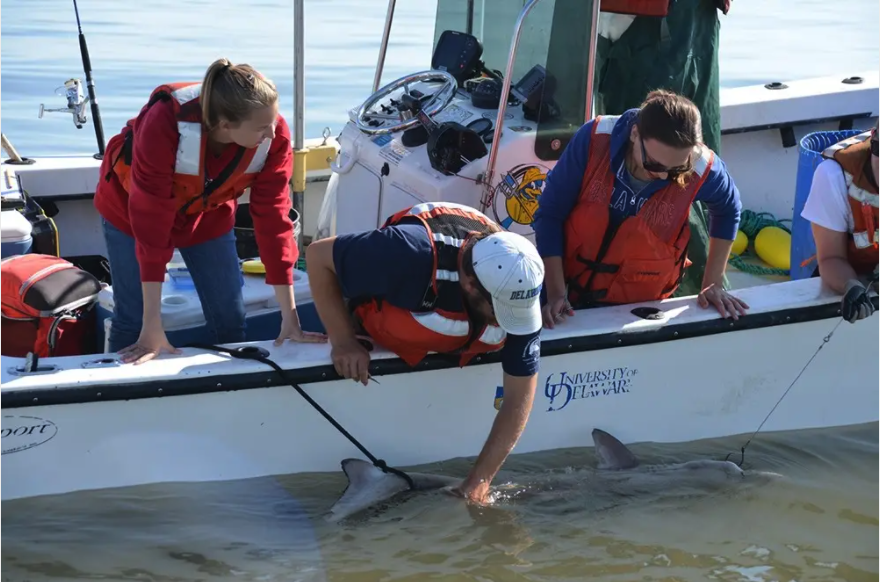[background_block]
Guest Post: Laura Thorne is a certified career coach who works with students, recent grads, and career changers in the environmental field.
[/background_block]
Graduate degrees can be quite valuable to any career seeker regardless of the industry. However, they are also costly and time-consuming. So how do you decide if it will be worth it?
You may be wondering, ‘Do I need to go to graduate school for an environmental career?’ The short answer to the question is no; you don’t need a graduate degree to work in an environmental field. There are even environmental jobs that don’t require a degree at all. You want to figure out if you need a advanced degree to land a job in the career field you want.
You still may want to go to graduate school even though it is not necessary for an environmental career. You will need an advanced degree if you want to land certain higher-level jobs, particularly those that involve conducting research. Graduate school may make it easier for you to beat out the competition for highly desirable jobs. With a master’s or doctorate degree, you may be able to advance along your career path more quickly or even earn a higher salary in a given position.
In this article, I present four steps that you can take to put an end to your wondering. You can either confidently bypass the advanced degree or get serious about the next step, finding environmental graduate programs where you would like to enroll.
[cjbn_cta]
Step 1. Determine if grad school could be right for you
Decide if going back to school, or staying in school longer, is something you even want to consider.
Here are some questions you can ask yourself to make this determination. Think of this as a flow chart. If you do not want to go for a graduate-level degree, you can start your job search looking for positions that do not require them. Otherwise, you’ll continue to Step 2.
- Do I like school enough to consider going back or sticking around longer?
- Do I have the finances, or can I get the finances at this time for graduate school?
- Related to the above, do I want to have student loans to pay off?
- Am I willing to delay gaining on-the-job work experience?
If you answered yes to any one of the questions in Step 1, continue to step 2. If you responded no to them, you are better off hitting the workforce and gaining some experience.
Some readers may feel that there is a negative stigma around not going directly into graduate school. If you think this way, it is likely due to pressures placed on you or some other influence you were exposed to in your lifetime. There is no reason to feel inadequate about either choice.
Early career experience can take you a long way in your career, and it may lead you back to graduate work later on with an even clearer picture of what you want to study. Getting early career experience is an entirely valid strategy and is a smart move for anyone hesitant about graduate school!
Step 2. Consider whether grad school will help you accomplish your goals
Determine if an advanced degree will help you achieve your career goals.
- Do I want to be eligible for higher-paying starting jobs?
- Do I want to teach at the university level someday?
- Do I want to be considered an expert in a specific area of study in the future?
If you answered no to all of the Step 2 questions, then the signs continue to indicate that you may be better off hitting the workforce sooner rather than later. If you answered yes to any one of them, then you’ll want to heavily consider an advanced degree as part of your career strategy.
Step 3. Gather the evidence to make a decision
Gather concrete evidence to help force a decision.
If you’ve made it this far, then you’ve determined that an advanced degree could be beneficial to you and your career, and you wouldn’t be miserable doing it. You may also already be convinced that you do want to pursue that master’s degree you’ve been considering.
However, if you’re still unsure, then you’ll want to gather some concrete evidence to help force a decision. Being uncertain for step three means you’ll need to look at the job descriptions for the careers that you would like to have.
Research and compare five job descriptions for positions that you would love to have one day. These descriptions are not meant for now and are a bit dependent on your experience at this point. Looking at the listed job requirements, which of the following best applies:
- They ALL say “master’s or Ph.D. required.”
- Some of them say “a master’s degree is preferred.”
- Most of them say a “master’s degree or x number of years of experience preferred.”
- Most of them do not require an advanced degree.
If 1 or 2 is the case, you’ll need to pursue an advanced degree. If 3 or 4 are the case, then you could go either route, and I’d suggest, if you made it this far, to start getting some work experience and see if it leads you back to an advanced degree. An alternative is to work and earn a graduate certificate at the same time.
[newsletter-signup]
Step 4. Flip a coin
Flip a coin. Step 4 is included as a last-ditch effort; however, you might want to try it and just see what happens.
At the risk of sounding reckless, there is one additional alternative if you just can’t decide; let fate decide instead. Flip a coin and choose heads or tails for going back to school or getting to work. The reality is that it’s most important to have a direction by choosing a path and moving forward then to sit on a rock and stay stuck.
The metaphorical coin-flip scenario is a gut-check you often see played out in movies and sitcoms. Flip the coin; if it comes back one way, and it makes you happy, that’s the right choice. If you flip the coin and feel the urge to flip it again, that’s likely the wrong choice.
By now, I hope you’ve made your decision. If not, you will need to reflect on what is holding you back. It could be fear of making the wrong decision, doubting your ability, or maybe you’re caught in the-grass-is-greener-syndrome where you see what someone else did and think that’s what you should be doing but can’t see yourself doing it.
I have had countless calls with people as an environmental career coach. Invariably, the indecision is within the person, and a coach or counselor can only help drag the answer out of you. Ultimately it’s your choice to make. Keep in mind there is no one right way, and the only way to know for sure is to follow your heart. The best advice I can give is to make an informed decision, as any good scientist does, and keep moving.
[background_block]
 Laura Thorne is a certified environmental career coach who works with students, recent grads, and career changers looking for meaningful work. She started helping others after concluding her career in habitat restoration in 2015. She is a board member of the National Association of Environmental Professionals. Read more from her on her website.
Laura Thorne is a certified environmental career coach who works with students, recent grads, and career changers looking for meaningful work. She started helping others after concluding her career in habitat restoration in 2015. She is a board member of the National Association of Environmental Professionals. Read more from her on her website.
[/background_block]




 Alyson Morris is the Communications Specialist for CJB Network and writes on environmental career development. She is a graduate student at the University of Oregon and is pursuing her Master’s in Strategic Communication.
Alyson Morris is the Communications Specialist for CJB Network and writes on environmental career development. She is a graduate student at the University of Oregon and is pursuing her Master’s in Strategic Communication.